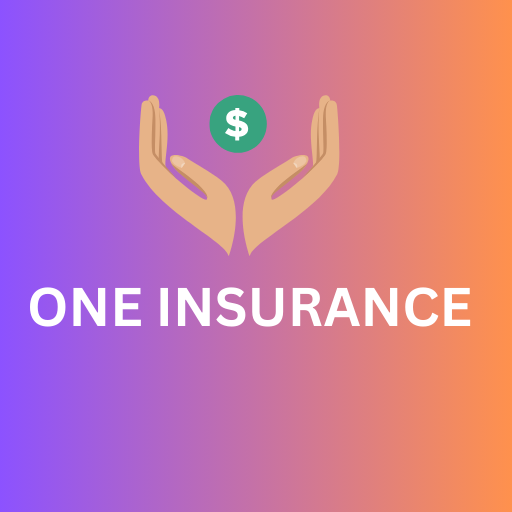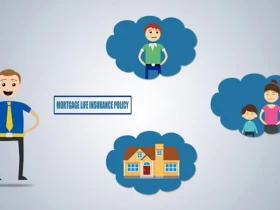Introduction to Education Insurance
What is Education Insurance?
Education insurance is a specialized financial product designed to secure your child’s educational future. Unlike regular life insurance, education insurance specifically covers the costs associated with higher education. This includes tuition fees, boarding, and other related expenses, ensuring your child can pursue their academic goals even if unforeseen circumstances arise.
Education insurance differs from regular life insurance in that it combines life coverage and savings benefits. While life insurance provides a payout upon the policyholder’s death, education insurance guarantees funds specifically for educational purposes, often maturing at a predetermined time when your child is likely to begin higher education.
Importance of Education Insurance
Education insurance is crucial for parents who want to ensure their children have the financial resources necessary for higher education. With the rising education costs, having a dedicated fund can make a significant difference. The benefits of education insurance for families include financial security, peace of mind, and the assurance that education costs will be covered regardless of unforeseen events.

How Education Insurance Works
Education insurance policies combine investment and insurance. Policyholders pay premiums over a period of time, which are invested to grow the fund. Upon maturity, the accumulated funds can be used for educational expenses. Understanding the basics of premiums, payouts, and maturity benefits is essential for making informed decisions about education insurance.
Types of Education Insurance Plans
Traditional Education Insurance Plans
Traditional education insurance plans, such as endowment and whole-life plans, offer a secure and predictable way to save for your child’s education. These plans typically guarantee a lump sum payout upon maturity, which can be used to cover educational expenses.
- Endowment Policies: These policies provide a guaranteed sum assured upon maturity or in the event of the policyholder’s death.
- Whole Life Plans: These plans offer coverage for the policyholder’s entire lifetime, with a lump sum payout that can be used for education.
Unit-Linked Education Insurance Plans (ULIPs)
Unit-linked education Insurance Plans (ULIPs) combine insurance with investment, offering higher returns but carrying more risk. The returns from ULIPs depend on the performance of the underlying assets, which can include equities, bonds, and other financial instruments.
- Benefits and Risks: While ULIPs have the potential for higher returns, they are also subject to market risks. It’s important to compare these with traditional plans to determine the best fit for your needs.
Child Education Plans
Child education plans are specifically designed to meet your child’s educational needs. These plans often include additional features, such as a premium waiver in the event of the policyholder’s death, ensuring that the child’s education is not compromised.
- Features of Child Education Plans: Child plans typically offer flexible premium payment options, coverage for various educational expenses, and tax benefits.
- Differences Between Child Plans and Other Education Insurance Plans: Child education plans are tailored specifically for education costs, while other plans may offer broader coverage.
Key Features and Benefits of Education Insurance
Coverage for Future Education Costs
Education insurance covers various educational expenses, including tuition fees, boarding, and other related costs. This ensures that your child can pursue their education without financial constraints.

Flexibility in Premium Payments
Education insurance plans offer flexibility in premium payments, allowing you to choose between single-premium and regular premium options. Selecting the right premium option depends on your financial situation and long-term goals.
Tax Benefits of Education Insurance
Education insurance policies often come with tax benefits under various tax code sections. Maximizing these benefits can reduce your overall tax liability while securing your child’s educational future.
Table of Contents
Financial Security and Peace of Mind
Education insurance provides financial security and peace of mind, ensuring that unforeseen events will not disrupt your child’s education. Additionally, these policies help protect against inflation in education costs, ensuring that your savings keep pace with rising expenses.
How to Choose the Right Education Insurance Plan
Assessing Your Child’s Child’sonal Needs
When choosing an education insurance plan, it’s essential to assess your child’s educational needs, including future education costs and the potential impact of inflation. This will help you select a plan that provides adequate coverage.
Comparing Different Education Insurance Policies
Comparing different education insurance policies is essential to finding the right plan for your needs. Evaluate features, benefits, and premiums carefully, and read the fine print in the insurance contracts.
Factors to Consider When Selecting an Insurance Provider
Choosing the right insurance provider is crucial for ensuring your education insurance policy delivers on its promises. Consider the company’s reputation and reliability, customer service, and claim settlement ratio.
Understanding the Payout Process
Maturity Benefits of Education Insurance
Maturity benefits are one of the critical advantages of education insurance. These benefits are calculated based on the sum assured, bonuses, and other factors. Understanding how these payouts work will help you plan for your child’s educational expenses.
Claiming Education Insurance Benefits
Filing a claim for education insurance benefits involves a step-by-step process, including gathering the required documentation and following the procedures. Knowing what to expect can make the process smoother and faster.
Dealing with Policy Lapses and Revival
If you miss premium payments, your education insurance policy may lapse. However, many policies offer options for revival, allowing you to reinstate the policy and continue saving for your child’s child.

Top Education Insurance Plans in [Your Country/Region]
Overview of Leading Education Insurance Plans
This section will provide a review of your country or region’s leading education insurance plans. It will include a comparative analysis of top providers and their key features.
Expert Recommendations on Best Education Insurance Policies
Financial advisors often recommend specific education insurance policies based on their performance, features, and benefits. We’ll share expWe’llips and criteria for selecting the best plans for your needs.
Case Studies and Success Stories
Real-Life Examples of Education Insurance in Action
Real-life case studies can provide valuable insights into how education insurance has helped families achieve their goals. These examples demonstrate the benefits of planning ahead and making informed decisions.
Common Mistakes to Avoid with Education Insurance
Avoiding common mistakes is vital to getting the most out of your education insurance policy. We’ll highlight the pitfalls and offer best practices for managing your policy effectively.
Frequently Asked Questions (FAQs) About Education Insurance
What Happens If I Can’t Pay the PCan’tms?
If you’re unable to pay your premiums, there are options available to manage missed payments, such as grace periods and policy loans. Understanding these options can help you keep your policy active.
Can I Withdraw Money from My Education Insurance Plan?
Partial withdrawals from education insurance plans may be allowed, depending on the policy’s terms and policy conditions. However, it’s essential to understand the impact of withdrawals on your overall savings.
What Happens If My Child Does Not Pursue Higher Education?
If your child decides not to pursue higher education, education insurance benefits can often be used for other purposes, such as starting a business or covering other financial needs.
How Does Education Insurance Differ from a 529 Plan or Other Education Savings Plans?
Education insurance offers unique benefits compared to 529 plans and other savings options. We’ll provide a narrative analysis to help you understand the differences and make an informed choice.

The Future of Education Insurance
Emerging Trends in Education Insurance
The education insurance market constantly evolves, with new trends and innovations emerging. We’ll explore sWe’llf the latest developments and what they mean for parents and policyholders.
The Impact of Technology on Education Insurance
Technology is transforming the insurance landscape, making it easier to compare policies, file claims, and manage education insurance. We’ll discuss how financial tools are changing the way education insurance works.
Predictions for the Future of Education Insurance
Looking ahead, we’ll offer prewe’llons for the future of education insurance, including what parents need to know about the evolving market and how to stay informed.
Conclusion
Recap of the Importance of Education Insurance
In conclusion, education insurance is a valuable tool for securing your child’s future. Please choose the right policy to ensure your child has the financial resources to pursue their dreams.
Final Tips for Parents
Finally, we’ll offer tips for staying informed and making the best decisions for your child’s education.
Additional Resources
Glossary of Terms
A glossary of commonly used insurance terms will help you understand the language of education insurance and make informed decisions.
List of Useful Links
We’ll provide websites, tools, and resources for further reading and research on education insurance.
Recommended Books and Articles
Finally, we recommend expert reads on education, insurance, and financial planning to help you deepen your understanding of the topic.









Leave a Reply